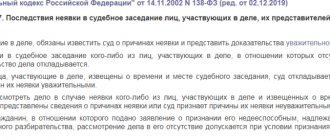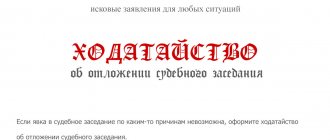ST 252 of the Criminal Code of the Russian Federation.
1. Pollution of the marine environment from land-based sources or due to violation of the rules for burial or discharge from vehicles or artificial islands, installations or structures erected in the sea of substances and materials harmful to human health and aquatic biological resources or interfering with the lawful use of the marine environment, - shall be punishable by a fine in the amount of up to two hundred thousand rubles, or in the amount of the wages or other income of the convicted person for a period of up to eighteen months, or by deprivation of the right to hold certain positions or engage in certain activities for a term of up to five years, or by compulsory labor for a term of up to four hundred eighty hours, or correctional labor for up to two years, or arrest for up to four months.
2. The same acts that caused significant harm to human health, aquatic biological resources, the environment, recreation areas or other legally protected interests are punishable by a fine in the amount of up to five hundred thousand rubles or in the amount of the wages or other income of the convicted person for a period of up to three years. , or forced labor for a term of up to two years, or imprisonment for the same period with a fine in the amount of up to forty thousand rubles or in the amount of wages or other income of the convicted person for a period of up to three months.
3. Acts provided for in parts one or two of this article, resulting in the death of a person through negligence, are punishable by forced labor for up to five years or imprisonment for the same term.
Commentary to Art. 252 of the Criminal Code
1. The objective side of the crime is expressed in the pollution of the marine environment from land-based sources or as a result of violation of the rules for the disposal or discharge from vehicles or artificial islands, installations or structures built in the sea of substances and materials harmful to human health and aquatic biological resources or interfering with the lawful use of the marine environment.
The crime is considered completed from the moment any of the listed acts are committed.
2. The subjective side is an intentional form of guilt.
3. Special subject of the crime - a person responsible for compliance with the rules for protecting the marine environment.
4. The subjective side of the crime provided for in Part 2 of Art. 252 of the Criminal Code, is characterized by both intentional and careless forms of guilt.
Commentary on Article 252
1. This article is a modified version of Art. 223(1) of the Criminal Code of the RSFSR “Pollution of the sea with substances harmful to human health or living resources of the sea.”
The objectives of the commented article are to prevent pollution of the marine environment, which have a special status of coastal areas, as well as to ensure the lawful use of the sea.
2. The subject of this crime is the marine environment, i.e. internal sea waters, territorial sea waters, the open sea, as well as living resources of the sea that are inextricably linked with the habitat - the marine environment.
3. The protection of the marine environment from pollution is regulated by numerous international legal acts, domestic legislation, and by-laws. Thus, the Water Code of the Russian Federation establishes general rules for the protection and use of the marine environment within internal sea waters, as well as within the territorial sea (see commentary to Article 11). Other federal laws, for example the Law “On Wildlife,” determine the status, rules of protection and procedure for the use of wildlife inhabiting the territorial sea, continental shelf and exclusive economic zone of the Russian Federation (Article 4). Government decrees and departmental regulations establish rules for disposal, discharge into the marine environment of various substances, materials and waste, rules for the operation of artificial structures built at sea (platforms, artificial islands, etc.). See, for example, the Government Decree “On measures to comprehensively solve the problem of radioactive waste management and stop their disposal at sea” dated December 30, 1993 (RG, 1994, June 1).
4. The objective side of this crime is expressed in active actions, for example, discharge of pollutants from a ship without appropriate permission, disposal of unspent nuclear fuel from water vessels, discharge of petroleum products into the marine environment, etc., and inaction, for example, failure to take measures by authorized officials to prevent the discharge of pollutants, as well as the consequences and causal relationships between them.
The consequences of this crime are pollution of the marine environment, i.e. the introduction of substances and materials into it that deteriorate the quality of the marine environment, limiting its use, leading to destruction, reduction of stocks and species diversity, and diseases of living marine resources.
Significant harm to human health, provided for in Part 2 of Art. 252, is expressed in causing such harm of any severity (from mild to severe). Significant harm to flora or fauna, or fish stocks means mass death of fish, marine mammals and other marine animals, marine organisms and plants, destruction of spawning grounds, reduction or destruction of commercial stocks of one or more fish species in a given region. Significant harm to recreation areas, which may include the coastal strip and sea waters, is expressed in such pollution that makes it impossible to use them for recreation and recreation of citizens, requiring significant financial and material resources to eliminate the consequences of pollution. The issue of the extent of harm caused by pollution of the marine environment is decided by the court, taking into account the specific circumstances of the case.
A causal connection between violation of the rules for the burial or discharge of pollutants and waste from vehicles, or violation of the rules for environmental protection from land-based sources (both directly in the sea and through estuaries, i.e., the mouths of rivers flowing into the sea) and the occurrence of consequences must be established.
5. The crime is considered completed under Part 1 from the moment the consequences occur—pollution of the marine environment; under Parts 2 and Part 3—from the moment the consequences specified therein occur in the form of significant damage to various legally protected values.
6. The subject of this crime may be a person who has reached the age of 16, who is assigned professional (official) responsibilities by the relevant regulatory or law enforcement acts to comply with and monitor compliance with the rules for the disposal and discharge of pollutants and materials from transport ships (captains and other ship officials ), artificial structures erected at sea (owners, managers and other officials of drilling rigs, platforms, etc.), officials of enterprises that polluted the marine environment from land.
7. The subjective side of this crime is characterized by indirect intent, and in relation to the death of a person as a result of pollution of the marine environment - negligence.
Scientific and practical commentary:
1. The elements of the crime were known to the legislation before, but the wording of this norm has undergone significant changes. The social danger of the crime in question lies in the fact that it causes harm to the marine environment, living resources of the sea, and interferes with the legal use of the marine environment. 2. The object of the crime is relations to ensure the protection of the marine environment from pollution and the legality of its use. The subject of the crime is the marine environment, which covers internal sea waters, the territorial sea of the Russian Federation and the waters of the high seas. Internal sea waters include sea waters located towards the coast from the baselines adopted to measure the width of the territorial sea of Russia; to the territorial sea - coastal sea waters with a width of 12 nautical miles, measured in accordance with the norms of international law and the legislation of the Russian Federation (Articles 1 and 2 of the Federal Law of July 31, 1998 N 155-FZ “On internal sea waters, territorial sea and adjacent zone of the Russian Federation" <1>). ——————————— <1> NW RF. 1998. N 31. Art. 3833.
The high seas are an area of seas or oceans that does not belong to the territorial sea of the Russian Federation or other states, the use of which is regulated by international legal norms. 3. The objective side of the crime is expressed in the pollution of the marine environment from land-based sources or as a result of violation of the rules for the disposal or discharge from vehicles or artificial islands, installations or structures built in the sea of substances and materials harmful to human health and aquatic biological resources or interfering with the lawful use of the marine environment. On the content of the concept of pollution, see the commentary to Art. Art. 250, 251. 4. From land-based sources, which include industrial, agricultural and other enterprises, air, railway, pipeline, road transport and other objects, pollution of the marine environment can occur as a result of the discharge into the sea of substances and materials that are harmful for human health and living resources of the sea or interfering with their lawful use (for example, petroleum products, fertilizers, pesticides, etc.). 5. Disposal in accordance with the Federal Law of November 30, 1995 N 187-FZ “On the Continental Shelf of the Russian Federation” <1> means any deliberate removal of waste or other materials from ships and other floating craft, aircraft, artificial islands, installations and structures, as well as any deliberate destruction of these items. ——————————— <1> NW RF. 1995. N 49. Art. 4694.
6. The crime has a formal structure and is considered completed from the moment of pollution of the marine environment. 7. From the subjective side, a crime is characterized by an intentional form of guilt. 8. A special subject of a crime is a person who has reached the age of 16 and who is entrusted with the obligation to comply with the rules for the protection of the marine environment. 9. The qualified type of crime in question is the same act that caused significant harm to human health, aquatic biological resources, the environment, recreation areas or other interests protected by law. The significance of the damage is established taking into account the factual circumstances of the case and the prescribed rates. Thus, harm to aquatic biological resources can be expressed in the destruction of spawning grounds, fish food supply, mass death of marine biological resources, etc. Recreation areas covering coastal strips and marine waters may be damaged to such an extent that significant costs will be required to eliminate pollution or their intended use will become impossible. 10. Acts provided for in Parts 1 and 2 of Art. 252, which through negligence resulted in the death of a person, are punishable under Part 3 of the commented article.
Second commentary to Art. 252 of the Criminal Code of the Russian Federation
1. The marine environment covers internal sea waters, the territorial sea of the Russian Federation and the waters of the open sea.
2. For the content of the concept of pollution, see the commentary to Art. 250, 251 CC.
3. Pollution of the marine environment from land-based sources may occur as a result of the discharge into the sea of substances and materials that are harmful to human health and living resources of the sea or that interfere with their lawful use.
4. Disposal means any deliberate removal of waste or other materials from ships and other floating craft, aircraft, artificial islands, installations and structures, as well as any deliberate destruction of these items.
4. The subjective side is characterized by an intentional form of guilt.
5. The subject of the crime is a special one: a person who has reached the age of 16, who is entrusted with the obligation to comply with the rules of protection of the marine environment.
6. On the concept of significant harm, see the commentary to Art. 246 of the Criminal Code.
7. Significant harm to other legally protected interests is primarily expressed in the violation of the human right to a favorable environment. In addition, it may result in damage to sectors of the national economy, political and economic interests of the state, its prestige, etc.
8. Acts provided for in Parts 1 and 2 of Art. 252 of the Criminal Code, resulting in the death of a person through negligence, are punishable under Part 3 of this article.
Judicial practice under Article 252 of the Criminal Code of the Russian Federation
Cassation ruling of the Judicial Collegium for Criminal Cases of the Supreme Court of the Russian Federation dated August 20, 2020 N 15-O20-1
At the court hearing, Yudin, in addition, pointed out violations of his right to defense during the preliminary investigation and trial, which he justified by poor conditions of detention in the pre-trial detention center , lack of proper conditions for preparing for trial and the possibility of communicating with a lawyer to agree on a position on the case in court, because he was kept in a “cage” and was forced to communicate through the escort service; he was not provided with conditions for recording what was happening in court, and therefore was deprived of the opportunity to ask questions to witnesses in the case. He believes that by satisfying the prosecutor’s requests to include documents in the case and study individual protocols, the court actually predetermined its conclusions about the admissibility of evidence. Believes that the judge presiding over the case did not have the right to consider the case on the merits, since he had previously made a decision to authorize operational investigative measures against the accused Firsov and thus, in the opinion of the convicted person, had already expressed his position on the case, indicates violations by the court of the provisions Art. 252 of the Criminal Code of the Russian Federation when qualifying his actions.
Appeal ruling of the Judicial Collegium for Criminal Cases of the Supreme Court of the Russian Federation dated January 18, 2018 N 38-APU17-11
law enforcement agencies of the Republic of Tajikistan for criminal prosecution on charges of committing crimes provided for in clauses “b”, “c”, part 4 of art. 249 and paragraph “b”, part 3, art. 252 of the Criminal Code of the Republic of Tajikistan. Having heard the report of Judge P.E. Kondratov. about the circumstances of the case, the content of appeals and objections to the complaint of Abdukhalilov O.R., having heard the speeches of the extradited Abdukhalilov O.R. and his defender - lawyer Sivchenko V.T., who supported the appeals with additions, and also after listening to the opinion of prosecutor Lokh E.N., who proposed that the court ruling be left unchanged and the appeals not satisfied, the Judicial Collegium
Appeal ruling of the Judicial Collegium for Criminal Cases of the Supreme Court of the Russian Federation dated June 17, 2020 No. 3-APU19-10
However, the court indicated in the verdict that the basis for the activities of the organized criminal group was the replenishment of the general treasury with criminal income generated as a result of the commission of a crime under Art. 163 of the Criminal Code of the Russian Federation, and cited the testimony of witnesses B., M.G. and others, data from the inspection of M.’s computer, thereby going beyond the scope of Art. 252 of the Criminal Code of the Russian Federation.
Appeal ruling of the Judicial Collegium for Criminal Cases of the Supreme Court of the Russian Federation dated December 27, 2017 N 4-APU17-49
- lawyer V.A. Brigadin, challenging the verdict, claims that the place where the crime was committed has not been established, the line of the customs border at Sheremetyevo airport has not been established, and there is no evidence that Kocharovsky crossed this border before his inspection. Indicates violations of Art. 252 of the Criminal Code of the Russian Federation, since Kocharovsky was charged with purchasing a ready-made liquid containing dimethyltryptamine, and not a separate acquisition of dimethyltryptamine and placing it in a bottle of liquid;
Resolution of the Supreme Court of the Russian Federation dated August 30, 2018 N 209-UD18-7
The statement in the complaint about the need to bring other persons to justice along with Nemoshkalo contradicts Part 1 of Art. 252 of the Criminal Code of the Russian Federation, as correctly indicated by the district military court. Nemoshkalo’s actions under Part 3 of Art. 285 of the Criminal Code of the Russian Federation are qualified correctly based on the factual circumstances of the case established by the court.
Cassation ruling of the Judicial Collegium for Criminal Cases of the Supreme Court of the Russian Federation dated October 18, 2018 N 72-O18-1
From the testimony of witness V. and the convicted Grigoriev, it follows that they participated in the illegal cutting of forests organized by Pershikov and handing it over to the “Chinese” for a sawmill. V. indicated the felling site, which was inspected. These circumstances were examined in court taking into account the requirements of Art. 252 of the Criminal Code of the Russian Federation, to clarify the motive for the actions of the convicted, without any assessment and conclusions regarding the actual actions of the convicted and other persons.






